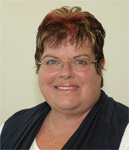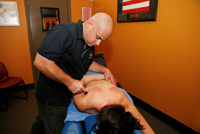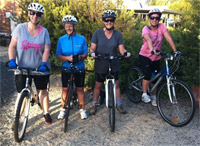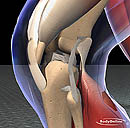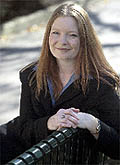Vanessa Jones Sleep Play Live: Log On To Learn
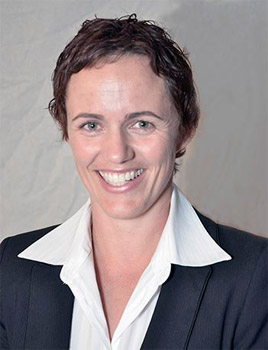
Vanessa Jones Sleep Play Live: Log On To Learn
In a bid to reach more people and improve the lives of those living with musculoskeletal conditions, Arthritis and Osteoporosis Victoria's (A&OV) annual Consumer Conference will be streamed in a live webcast.
Musculoskeletal (MSK) conditions can be painful. They impact on many different areas of life such as sleep, physical activity, home and work.
'The 6.1 million Australians who have a MSK condition deal with chronic pain on a daily basis," said CEO Linda Martin.
'By hosting a live webcast for this year's Consumer Conference we are aiming to reach more people with information that will help them manage their condition daily and improve their quality of life." The 2014 Consumer Conference will be hosted by television presenter Marianne Van Dorslar and carries the theme, -Sleep Play Live.'
Presentations will include:
Sleep - Why is sleep important and how can you get a good night's sleep?
Dr Simon Kinsella is a Melbourne based clinical psychologist who specialises in working with people experiencing issues such as depression, anxiety, chronic pain and sleeping disorders. He will share strategies on how you can improve your sleep quality.
Play - Why should you exercise and what exercise is right for you?
Vanessa Jones is an exercise physiologist, skilled in the provision of exercise for people with chronic conditions. She will explain how exercise can be used as safe and effective medicine.
Live - Tips, tricks and options to help you manage day-to-day
Fiona Thomas is an occupational therapist working in a variety of roles from rheumatology, to pain management. She will show you practical ways for making your life more manageable.
Arthritis and Osteoporosis Victoria is the largest musculoskeletal Not for Profit in Australia representing people who live with arthritis, osteoporosis and over 150 other musculoskeletal conditions. We receive less than 1% of recurrent government funding and rely on the generosity and support of our donors to provide important services, advocacy, information, education and research.
Sleep Play Live will be held on October 26th.
Interview with Vanessa Jones, Accredited Exercise Physiologist, A&OV
Question: What is the Sleep Play Live conference?
Vanessa Jones: The -Sleep, Play, Live' conference is going to be an engaging, relevant and person-centred event designed to provide information and support options for people living with MSK conditions, their family members, friends and carers. We know that two of the biggest issues facing people living with MSK conditions are pain and the difficulties they have doing day-to-day activities. The topics to be presented at this year's conference aim to address these issues and provide attendees with practical strategies and ideas to implement in everyday life.
Question: Can you talk about why you wanted to present at the Sleep Play Live conference?
Vanessa Jones: I am passionate about supporting people to engage in health promoting behaviours. The opportunity to present on exercise and physical activity to a wide audience is one way I can help get the messages out about what people can expect when engaging in exercise and physical activity. Having realistic expectations regarding physical activity and exercise is import. I will addressing this as part of my presentation at the conference.
Question: Why should those with musculoskeletal conditions exercise?
Vanessa Jones: Move it or lose it! The benefits are many, as they are for anyone, MSK or not. However, of particular importance for people with MSK conditions, safe and appropriate exercise and physical activity can assist with the following:
Improved function
Support for affected joints
Lubrication of joints
Stability of affected areas
Mobility
Maintenance of independence
Improved mood
Socialisation (if in group situations)
Improved tolerance to everyday movement patterns
Question: When you say exercise are you referring to sports?
Vanessa Jones: Exercise refers to structured exercise programs that address a person's specific needs in relation to movement and function. For example, if someone is experiencing significant stiffness in certain joints then it may be appropriate to do some targeted range of movement and stretching activities and/or strengthening activities to assist the mobility and support of that particular area. If someone is struggling to walk to the shops, some aerobic activities may be beneficial to help improve aerobic capacity.
Physical activity refers to identifying opportunities for incidental movement throughout the day. For example, parking a bit further from a door way at the shopping centre or doing some range of movement activities whilst doing the dishes or watching TV.
Sport can play a role in providing opportunities for exercise and physical activity. Depending on what MSK condition a person has and how that particular condition affects the individual concerned, a person with an MSK may need to modify or find alternative sports to engage in – or they may be able to participate without limitation. It can be very individual, and if people are unsure, I recommend they seek advice from their health and medical professionals.
Question: How can exercise benefit someone with musculoskeletal conditions?
Vanessa Jones: Participation in progressive exercise programs can enable people to engage more fully in the activities of daily life that they want to do. One of my favourite sayings is -If you always do what you've always done, you'll always get what you've always gotten'. People can't expect to keep doing things the same way and get different results. Our bodies learn quickly and adapt to new exercises fast – in order to keep improving we need to keep finding ways to challenge the body.
Question: How is exercise a safe and effective medicine for someone with a musculoskeletal conditions?
Vanessa Jones: Exercise, at the correct intensity and duration can improve quality of life and decrease the impact of MSK conditions. Exercise needs to considered as an essential part of a multi-disciplinary approach to the management of MSK conditions. Other factors that are important include medical/pharmacological management, a responsive healthcare team to provide support, healthy eating, managing difficult emotions and fluctuations in conditions.
Question: To be used as a medicine how often does exercises need to be done?
Vanessa Jones: Regularly! The principle of -reversibility' kicks in pretty quickly. There are national guidelines for participation in exercise and physical activity. These guidelines are great, but maybe out of reach for people starting out or getting back into physical activity and exercise. I think a great way to look at getting started with exercise is to assess what you are currently doing, and add a little bit each day if you can or at least every other day. Start small and progress slowly – but make sure you progress! There are several ways of monitoring the body's response to exercise that can be helpful for people with an MSK – I'll be chatting more about these at the conference.
Question: Can exercise aid in reducing the daily pain of musculoskeletal conditions?
Vanessa Jones: Great question! This is something I will be focussing on at the conference; however I will say that if people with MSK conditions start exercise with the primary motivation or expectation that exercise will reduce pain, often they will not continue with exercise long term. Exercise may reduce pain levels for some people in the long term, but the benefits of exercise mentioned earlier are what the primary outcomes from exercise programs are more likely to be.
Question: Can you talk us through what exercises are recommended for someone with musculoskeletal conditions?
Vanessa Jones: This is a tricky one to answer. An exercise program should be developed on what an individual's needs and goals are, taking into account any restrictions or limitations of their individual health status. In saying that, I am a huge advocate for focussing on exercises that help us move in everyday life. Exercises that replicate some of these movements are beneficial and can almost always be modified to suit people with different restrictions. Sometimes it is important to do some other types of exercise to address specific weakness or limitation. Most importantly, I first and foremost encourage people to find ways to MOVE!
Question: Are there certain exercises or even sports you do not recommend?
Vanessa Jones: Again, some people will have specific movements or situations that are not recommended. But it is rather based on individual presentation than a blanket rule for all. We would always suggest people avoid things like full necks circles and ensure that they are adequately warmed up before engaging in moderate intensity or vigorous exercise. It is also important to engage in an adequate cool down following an exercise session.
Question: What are your top lifestyle tips regarding movement for someone with a musculoskeletal condition?
Vanessa Jones: Move it or lose it
2. If you are feeling bad, look for opportunities to do gentle range of movement exercises
3. Arm yourself with options – don't just lump all your eggs in one basket
4. Start small and gradually add progression
5. Exercise is not a silver bullet – but it will help if you stick with it.
6. If you're not sure, or are fearful – get professional support.
Interview by Brooke Hunter
Have You Seen This?
MORE





